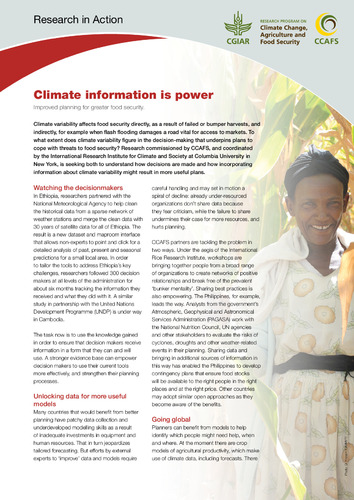Factsheet
Climate information is power: improved planning for greater food security
Abstract
Climate variability affects food security directly, as a result of failed or bumper harvests, and indirectly, for example when flash flooding damages a road vital for access to markets. To what extent does climate variability figure in the decision-making that underpins plans to cope with threats to food security? Research commissioned by CCAFS, and coordinated
by the International Research Institute for Climate and Society at Columbia University in New York, is seeking both to understand how decisions are made and how incorporating information about climate variability might result in more useful plans.

